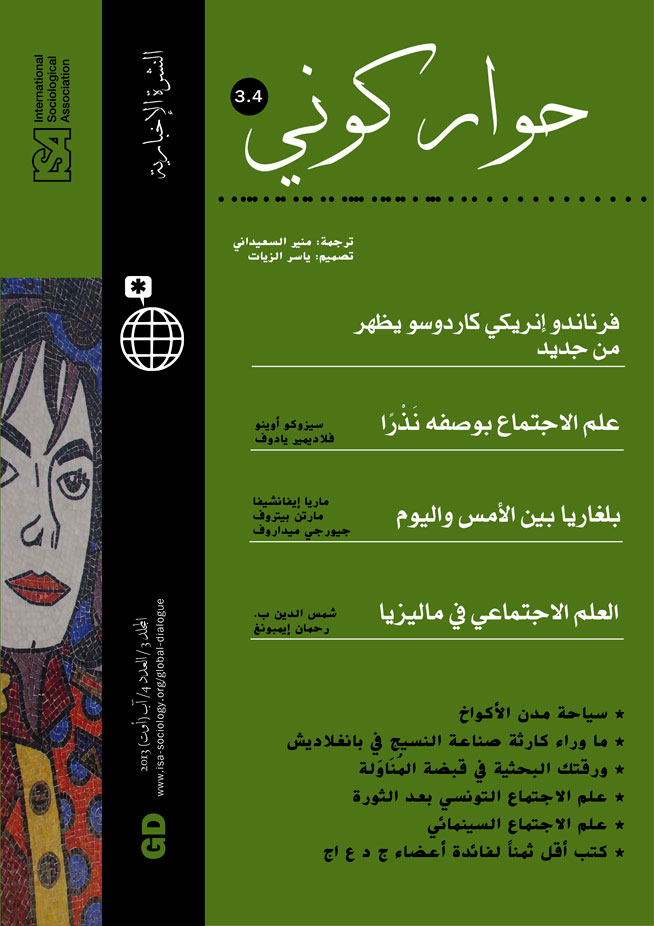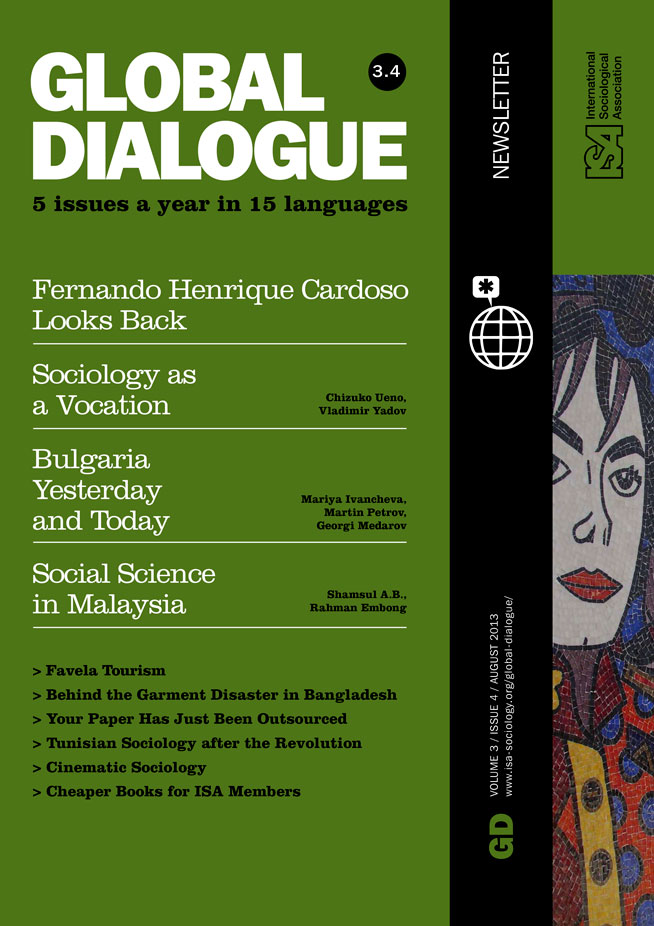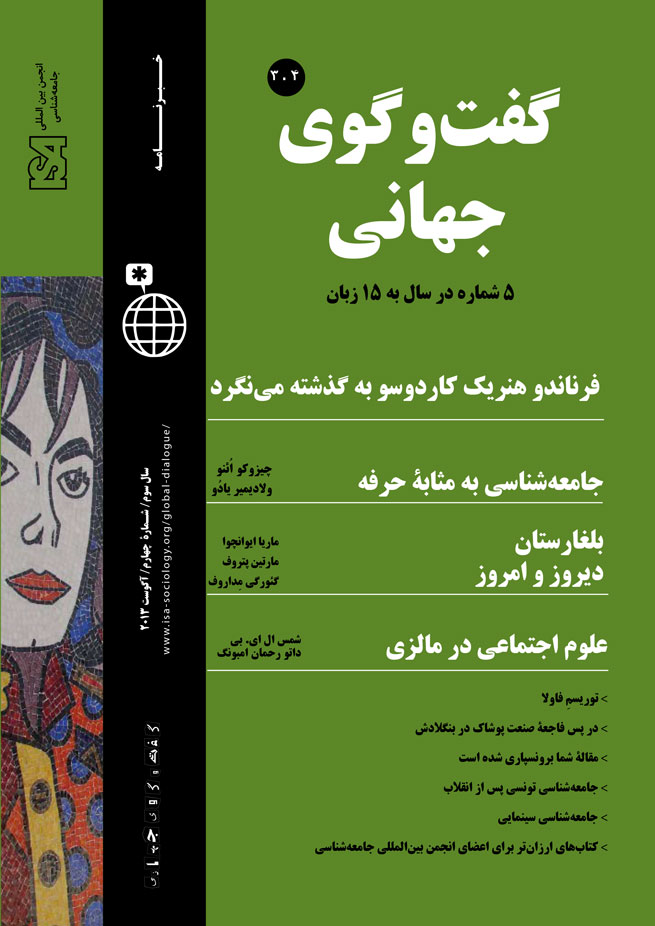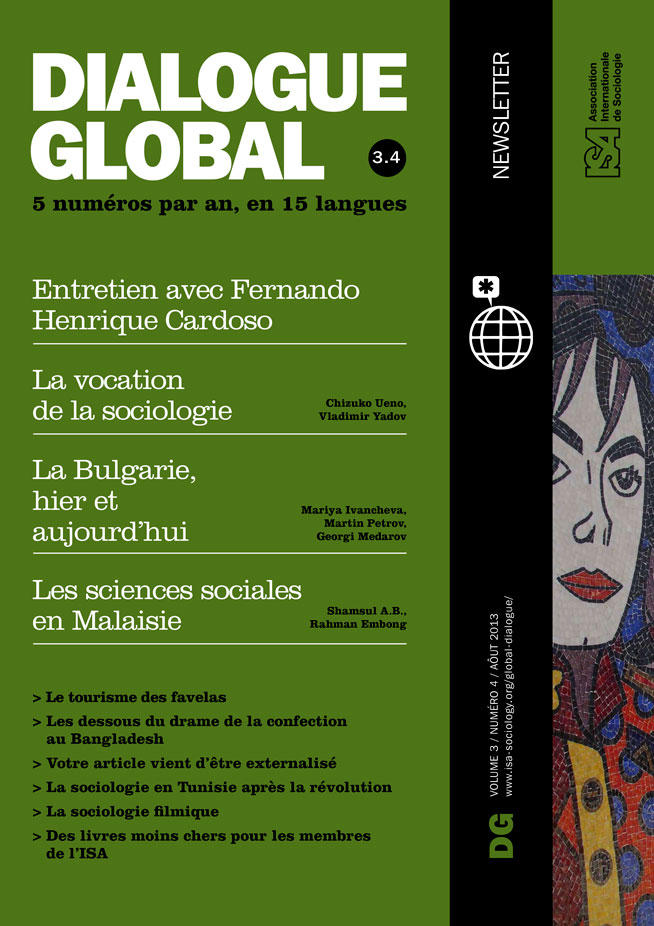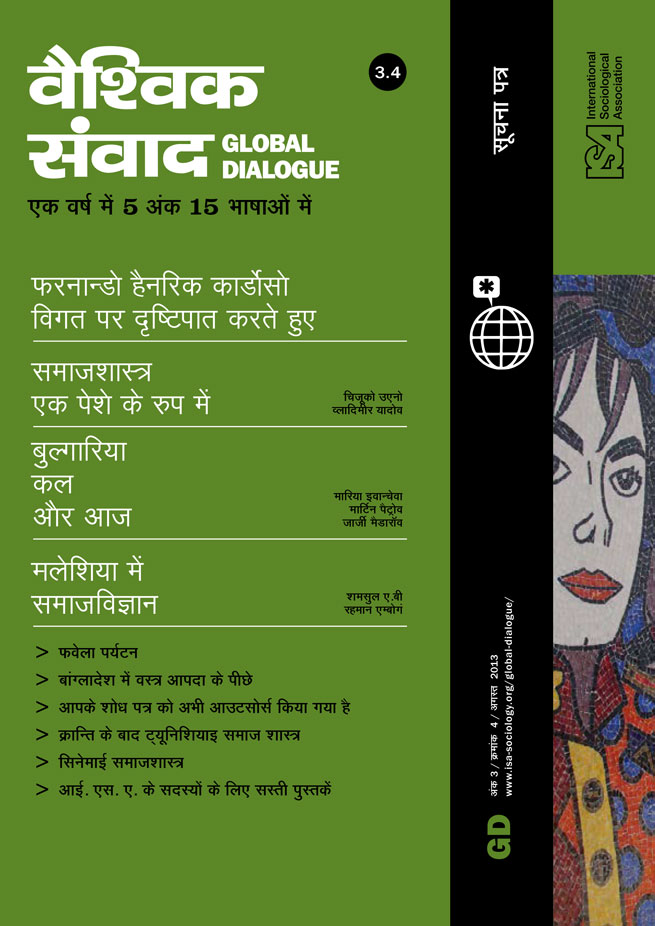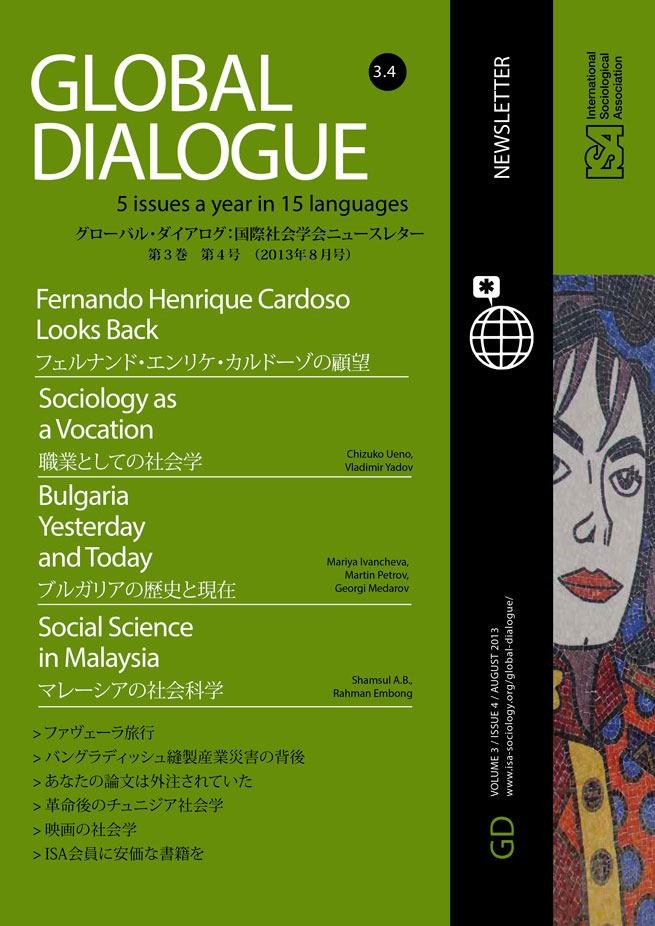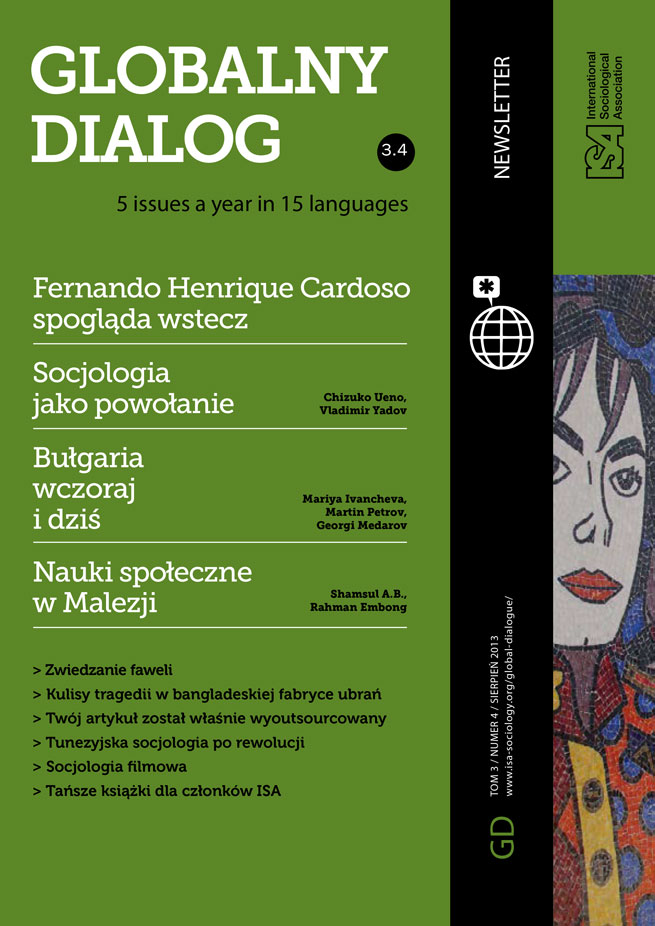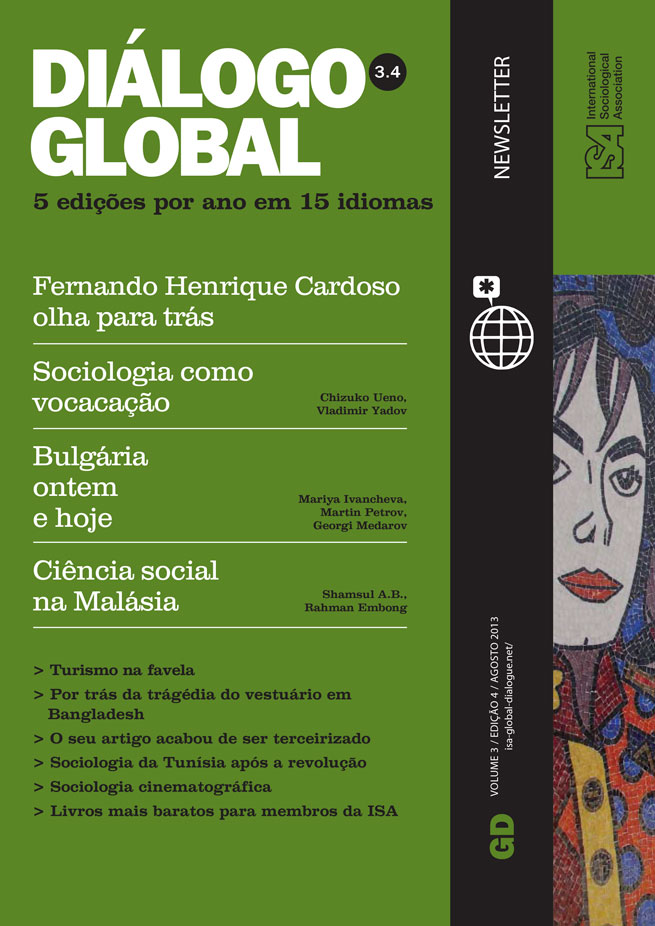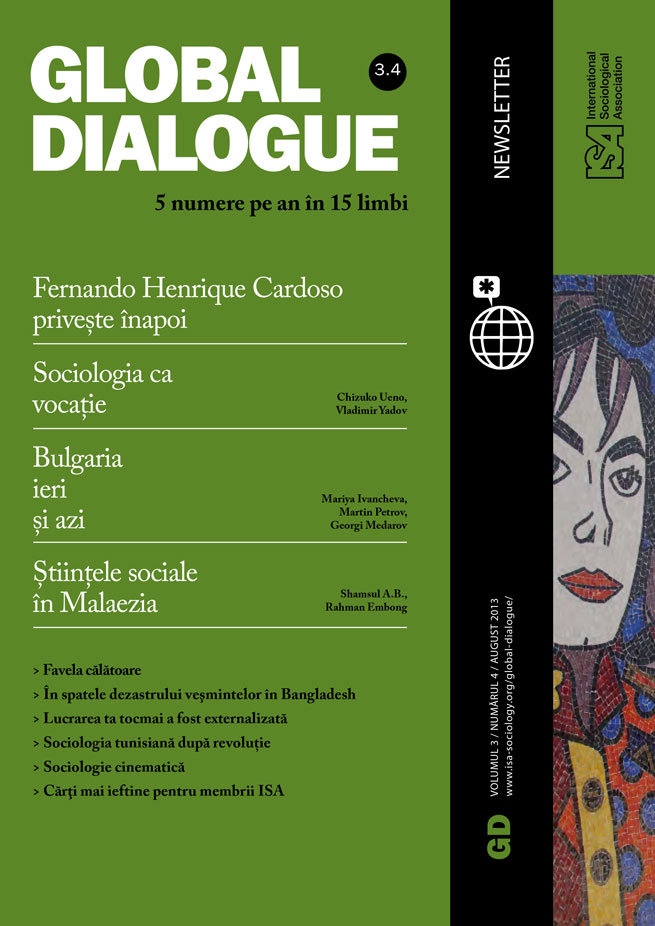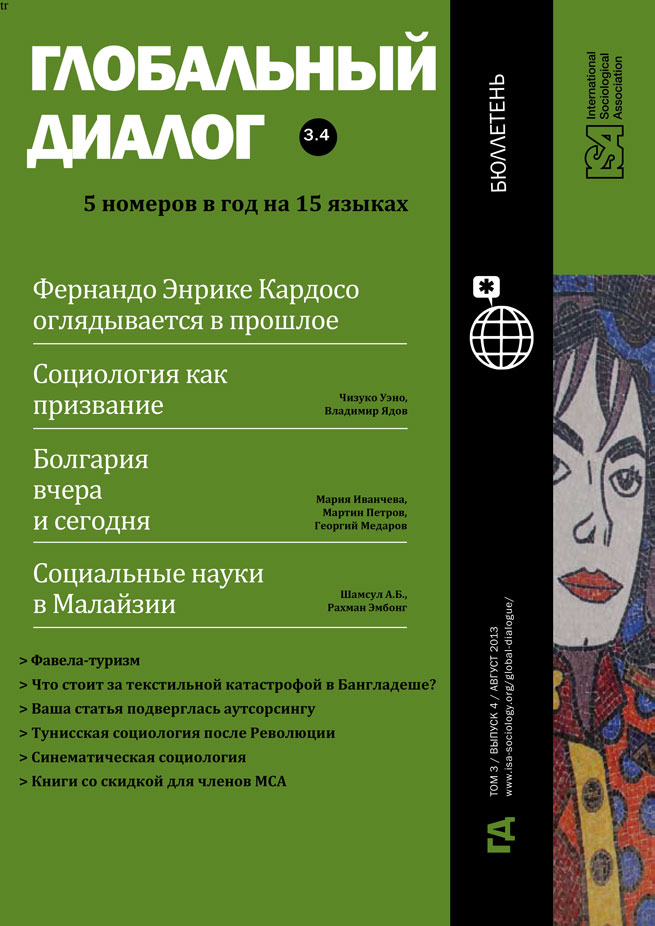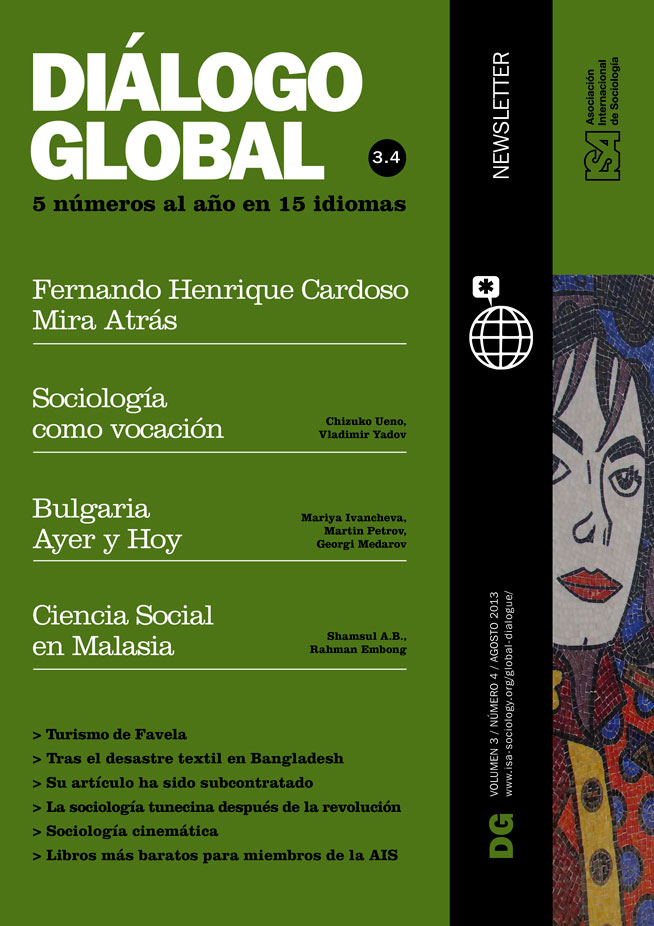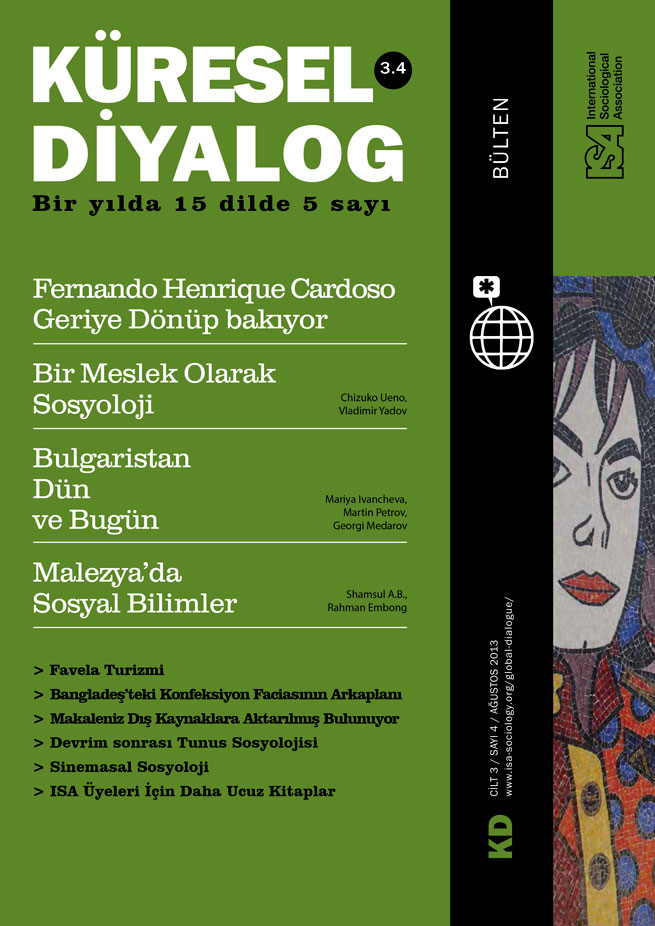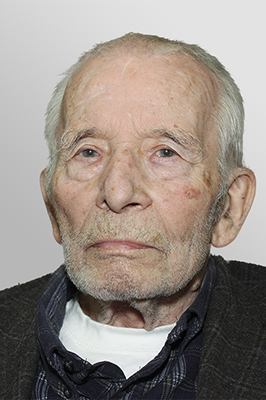Read more about Sociology as a Vocation
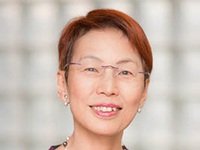
On Becoming a Feminist in Japan
by Ueno Chizuko
August 17, 2013
Vladimir Yadov was a pioneer of sociology in the Soviet Union, where the subject assumed a precarious existence as a “bourgeois” science. At Leningrad University he was a central figure in creating the first sociology laboratory in the 1960s, followed by the publication of Man and His Work as well as the first textbook on methodology which defined the new profession. He developed a social-psychological theory of the self-regulation of social behavior and was elected to the leadership of the European Association of Experimental Social Psychology. In post-Soviet Russia he became the Director of the Institute of Sociology at the Russian Academy of Sciences, developing a multi-paradigmatic approach to sociology. For many years he was an ambassador of Russian sociology abroad and between 1990 and 1994 he was Vice-President of the International Sociological Association. He is the leader of the liberal-democratic wing of Russian sociologists opposing the rise of conservatism. He is much beloved by the many students he has trained from the beginning of Soviet sociology to the present.
I became a sociologist back in the early 1960s, and today, when it is time to summarize the results of my life’s journey, I feel very fortunate about that turn in my life. For many years the official media in the Soviet Union labeled sociology as a “bourgeois pseudo-science.” However, after Stalin’s regime was dissolved in the late 1950s, we had a period of modest liberalism. My colleagues and I managed to set up a sociological laboratory at Leningrad University, and, at the same time, a sociology division – Section for the Study of New Forms of Labor and Leisure – was established at the Institute of Philosophy of the USSR Academy of Sciences. In a way, it was the beginning of a sociological movement. Yet, all pioneers of sociology had different educational backgrounds and had to learn a new profession as extramural students, or as we might say today as distance learners, from textbooks (mainly in English), which were difficult to obtain and, therefore, had to be distributed by “samizdat” – carbon copies with the translations typed on cigarette paper.
Communication with sociologists from Poland, where the sociology profession was firmly established as an academic discipline, despite the “iron curtain,” was vital. Joint research projects were conducted within the framework of collaboration among Eastern European countries. I was lucky to be engaged in close communication with Jan Szczepański, while Zygmunt Bauman educated me in theory, and Stefan Nowak spent many hours explaining all the nuances of field research. Today, as Dean of the Sociology Department at the Humanitarian University of the Russian Academy of Sciences I continue to have close collaboration with the Department of Sociology at the University of Warsaw, where Krzysztof Kosela has inherited the tradition of his mentor, Stefan Nowak. The custom of professional cooperation among the elder generation is now transmitted to the next generations.
In 1958 Soviet authorities gave us permission to establish the Soviet Sociological Association, but under strict ideological control. Its bylaws stipulated that historical materialism is the foundation for Marxist sociology. The government decree that constituted the Association required its members to promote the virtues of Marxist sociology at international conferences. One way or another, the attendance of young sociologists at congresses of the International Sociological Association prompted new professional contacts, and friendly relations were established between Soviet sociologists and their colleagues from other countries.
Sociology is a common university discipline in present-day Russia. However (unfortunately), sociologists do not have the feeling of professional solidarity. The sociological community is divided into several autonomous associations. One of the manifestations of the post-Soviet “cultural trauma,” as Piotr Sztompka has put it, is polarization in the evaluation of Soviet and post-Soviet sociology. The polemics around the publication of Viktor Vakhshtayn’s article is the best illustration of this point.[1]
Society’s diseases – corruption, ethnic conflict, and others – are the leading research subjects today. Yet the methodological level, even in academic research projects, tragically remains below the level of thoroughness of the leading sociologists of the Soviet era. One of the reasons for this is the inadequate flow of talented college graduates who are reluctant to take low-paid teaching jobs. In the view of the general public, the profession of a sociologist is associated with “the pollster”, and so many people lump sociologists in with journalists, among whom there are an irresponsible few who are capable of “adjusting” data to suit the situation, or formulating questions with predetermined answers.
In any environment, a sociologist has to have a civic responsibility no less than professional knowledge and experience. As I communicate with students I remain an optimist. Although very few of them choose this profession as a service to society, in the near future I expect a new generation to step onto the stage of history and give sociology a professional shape that is worthy of our craft.
Vladimir Yadov, Institute of Sociology, Russian Academy of Sciences and former ISA Vice-President, 1990-1994
This issue is not available yet in this language.
Request to be notified when the issue is available in your language.
If you prefer, you can access previous issues available in your language:
